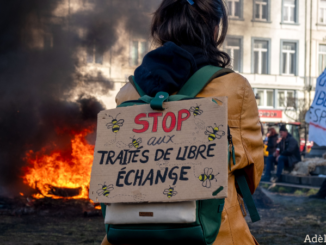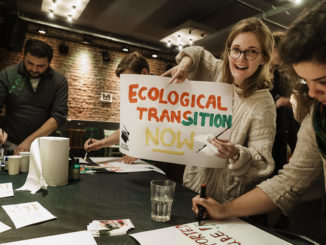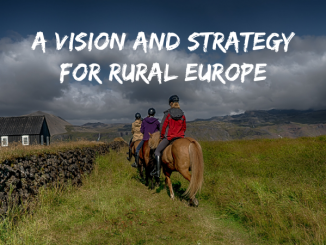
A range of amendments to the Nature Restoration Law (NRL) have been tabled for Tuesday’s Agriculture and Rural Development Committee in the European Parliament. Reduced targets, increased exemptions and a reduced role for NGOs are among the standout amendments.
A range of amendments to the Nature Restoration Law (NRL) have been tabled for Tuesday’s Agriculture Committee in the European Parliament, scheduled to take place 13.30-17.30. (you can watch proceedings here on Tuesday 23rd May)
A number of these are from the centre-right European People’s Party (EPP) and ECR conservative and eurosceptic group. Some also see both the Liberal (Renew; RE) group and in fewer cases again, the Socialists and Democrats (S&D) add their names to these proposed amendments. In the interests of transparency, the full set of Amendments is available below:
Agri Committee Amendments NRL for 23rd May 22 Agri Committee Meeting
As of yet, these are not listed on the agri committee’s website. While all groups in the Parliament have tabled amendments, many of those as tabled in particular by EPP and ECR, both also by both Renew and the S&Ds, target the environmental ambition of the NRL. Should some or all of these Amendments pass, the overall impact would be to significantly change and fundamentally weaken the ambition of the NRL.
There is however still more work to do in both AGRI and ENVI Committees, with ENVI due to adopt the draft rapporteur report sometime soon (see below). A plenary vote in the Parliament is indicatively scheduled for 10th July.
Meanwhile, the Council of Ministers is also working. EU environment ministers held a policy debate at the Environment Council in December, while the Swedish Presidency aims to reach a general approach at the Environment Council meeting 20th June. It is very likely that the Council position will see further weakening of the environmental provisions in the NRL.
There is then an inter-institutional process throughout the remainder of 2023 between co-legislators the Parliament and Council before the Nature Restoration Law potentially comes into force in 2024.
Key amendments tabled for agri committee
Key amendments related to Article 4 (Restoration of terrestrial, coastal and freshwater ecosystems). EPP ECR and RE sees reduction in protections for Nature 2000 and “other equivalent protected” areas. In particular, these groups’ amendments (plus some by the S&D group) have deleted references to numbered targets, including percentages of favorable area to be achieved by 2030, 2040 and 2050. (AMs 472 473 474, 477 481)

Article 5 on marine ecosystems sees similar proposed changes regarding the areas protected and percentages/targets.
Article 9 see amendments which add caveats to the aim of restoration. Amendments here would see weaker monitoring and a rejection of the key indicators: grassland butterfly index; stock of organic carbon in cropland mineral soils; share of agriculture with high diversity landscape features. This amendment is supported by EPP, ECR, S&D and RE. Bird index targets are also proposed to be deleted by RE, ECR EPP. (Ams 701, 702, 703, 716, 718, 719, 720,723-7 and more)
Importantly, amendments referencing all rewetting targets have been deleted for organic soils by S&D, RE and EPP. 2030 has been moved to 2035, while 2050 targets have been completely removed for both the size of area and the percent to be rewetted. Moreover, productivist caveats have also been added.

For national restoration plans (Article 11,12), the amendments mostly aim to change the power balance between the Commission and Member State. Obligations on member states to explain failures are removed, while productivist caveats and impact assessments to justify failures have been added.
For article 14 amendments propose national restoration plans are now merely to be “considered” not “assessed.” Again targets referencing 10% of agricultural area with high diversity features are to be removed should amendments pass (AMs 1092, 1093, 1094, 1095, 1096, 1097), and more caveats on maintaining productivity added.
The review of national restoration targets (Article 15) has an amendment tabled by the EPP (1127) to delete the option of the Commission requesting “updated draft national restoration plans with supplementary measures” with a six month timeframe – the timeframe has been deleted.
Importantly, for access to justice (Article 16), ECR, RE S&D – all propose seriously weakening the role of non-governmental organizations. These amendments – 1135, 1136, 1137 – propose that the following be deleted:

“For the purposes of paragraph 1, any non-governmental organisation promoting environmental protection and meeting any requirements under national law shall be deemed to have rights capable of being impaired and their interest shall be deemed sufficient.”
Overall then, these amendments – should they pass – will see all significant targets rejected or radically reduced, a range of excuses introduced for lack of progress, fewer accountability requirements for member states in how they relate to the Commission, and a severe weakening of the role of NGOs.
Background
The Nature Restoration Law was proposed by the Commission last Summer. (Read the Commission’s proposal here – Nature Restoration Law)
It proposes:
- An overarching nature restoration objective of at least 20% of the EU’s land and seas by 2030. (article 1)
- Restoration of terrestrial, coastal, freshwater and marine ecosystems (articles 4,5,7,9(4)) – is set for 30% by 2030
- Reversing pollinator decline by 2030; (article 8)
- Member States to “achieve an increasing trend” with regard to grassland butterfly index; organic carbon in cropland mineral soils; share of land with high diversity landscape features; achieve set targets for farmland bird index (article 9) .
The rewetting targets, subject to such controversy in recent weeks, are described exactly as follows:
“For organic soils in agricultural use constituting drained peatlands, Member States shall put in place restoration measures. Those measures shall be in place on at least:
(a) 30 % of such areas by 2030, of which at least a quarter shall be rewetted;
(b) 50 % of such areas by 2040, of which at least half shall be rewetted;
(c) 70 % of such areas by 2050, of which at least half shall be rewetted.
Member States may put in place restoration measures, including rewetting, in areas of peat extraction sites and count those areas as contributing to achieving the respective targets referred to in the first subparagraph, points (a), (b) and (c).
In addition, Member States may put in place restoration measures to rewet organic soils that constitute drained peatlands under land uses other than agricultural use and peat extraction and count those rewetted areas as contributing, up to a maximum of 20%, to the achievement of the targets referred to in the first subparagraph, points (a), (b) and (c).”
On Financing National Restoration Plans, there is an obligation to include both the money needed and the sources from which it will come.
In December, rapporteur César Luena proposed a more ambitious draft, not yet adopted, with higher restoration targets – from 20 to 30% of the EU’s land and seas by 2030. It proposes more ambitious 2040 and 2050 targets for habitats, achieving the 2030 targets of “10% of the Union’s agricultural area with high-diversity landscape features”.
Overall ENVI committee has the lead, and in parallel ENVI committee is negotiating amendments to the Commission’s NRL proposal. The AGRI opinion will be taken into consideration during the ENVI vote. Then the trilogue process as outlined earlier will unfold.
More
EPP Attacks Pesticide Regulation & the Nature Restoration Law





